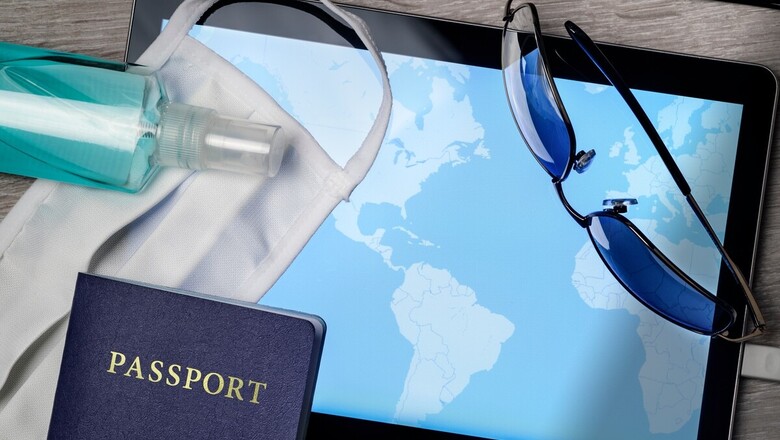
views
Long after a testing previous year, people are moving out and willing to travel. Gone are the days of familiar scenes of thousands of passengers flocking airports to board their flights or disembark from one. Everything seems like a whiff as the ‘new normal’ of lifestyle and travelling surfaces.
As international borders are opening, and ease of travel restrictions are being lowered across the world, it might come as a respite to many travel bugs,but with an added level of Covid-19 precautions and guidelines.
Here’s a look at some of the essential guidelines and travel checklist to follow before you decide to fly:
Baggage restrictions
All airlines have their standard-maximum weight, size allowance for the luggage you carry. Overpacking has its costs as you have to bear the burden of hefty surcharges. Instead, plan smart and keep a list of essentials to pack like clothes, personal items, toiletries, travel documents and most importantly Covid essentials and tick them off as you pack them away. It always helps to check with the airlines on how many checked-in baggage and cabin luggage can one carry.
Most airlines are increasingly encouraging web check-in for luggage during the pandemic through their portals. Download the baggage identification number or Check-in through phone or at self-service kiosks are in effect to ensure a contactless course of action.
Travel Documents
The ‘new normal’ way of travelling is to have a document checklist and carry them on your flight. Wherever possible, you may carry additional photo copies in case you happen to lose the original ones.
Visas and passports
Owing to the spread of COVID-19, several countries imposed stringent visa regulations. As the issuance of new visas begins, check with the destination country about their updated rules. Many European countries have opened their borders to allow tourists, however, restrictions are still in places for tourist visas from India, USA and few other Asia-pacific countries.
A negative RT-PCR test report
The real-time reverse transcription-polymerase chain reaction (rRT-PCR) test is mandatory in many countries and it cannot be older than 27 hours. Passengers who arrive in India must carry a negative report which cannot be older than 96 hours if they want to avoid mandatory institutional quarantine.
Travel insurance
Your own country’s health insurance is not likely to cover costs when travelling abroad. In the wake of Covid-19 emergency, travel insurance with international coverage is now essential. Several countries are mandating the same before admitting tourists.
Read all the Latest News, Breaking News and Coronavirus News here



















Comments
0 comment